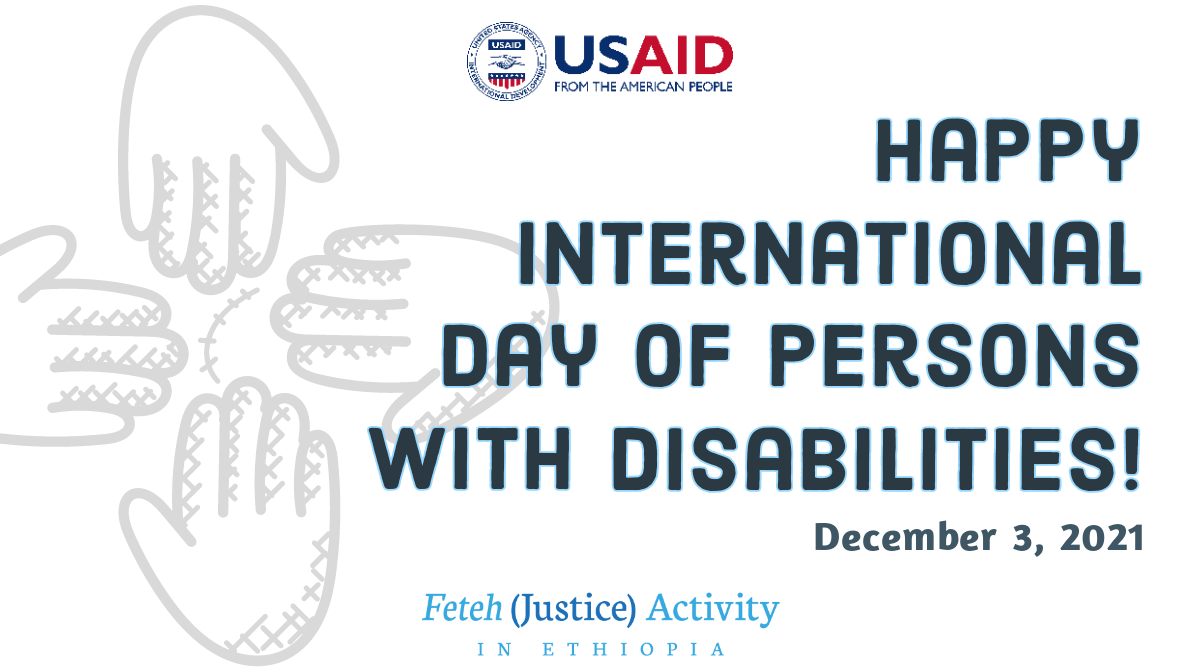Feteh Marks International Day of People with Disabilities
03.12.2021
Ethiopia

The Ethiopian Constitution states the duty of the government to protect the rights of persons with disabilities (PWDs) (Article 41(5)). According to the UN Convention on the Rights of PWDs, to which Ethiopia is a signatory, PWDs are “those who are unable to perform, all or in part, the necessary personal and social activities on his/her own due to his/her congenital malformations, physical or mental disabilities.” Furthermore, rights of people with visual impairment in Ethiopia are recognized under the Marrakesh Treaty, which became the law of the country through the ratification process that took place earlier this year. The Treaty regulates the responsibilities of publishers and other stakeholders in making published works accessible to the blind, visually impaired, or otherwise print disabled persons.
USAID Feteh Activity in Ethiopia, implemented by our Millennium/DPI joint venture (MDPI), recently completed a grant project with the Ethiopian National Association of the Blind (ENAB). The goal of this initiative was to help create inclusive legislative frameworks in the banking business and the copyright rules for the blind and visually impaired.
One of the tangible results achieved by ENAB is the launching of the first ATM service which has audio access for the blind in cooperation with the Bank of Abyssinia.
Mr. Yilkal Hassabie, Disability Rights Consultant to ENAB, stated that “The activities undertaken in the project played a significant role in achieving a big milestone in making the banking business inclusive for the blind.”
Under the umbrella of this activity, and with Feteh support, ENAB prepared two policy briefs, two empirical research, two draft laws (1. Access to literacy and artistic works for persons who are blind, visually impaired, or print disabled and 2. Disability Inclusion in Banking Services), and organized a panel discussion on the research and policy briefs which were broadcast country-wide over the radio.
Feteh also works closely with the media through TV and radio platforms to increase public awareness on related legislation about PWDs.